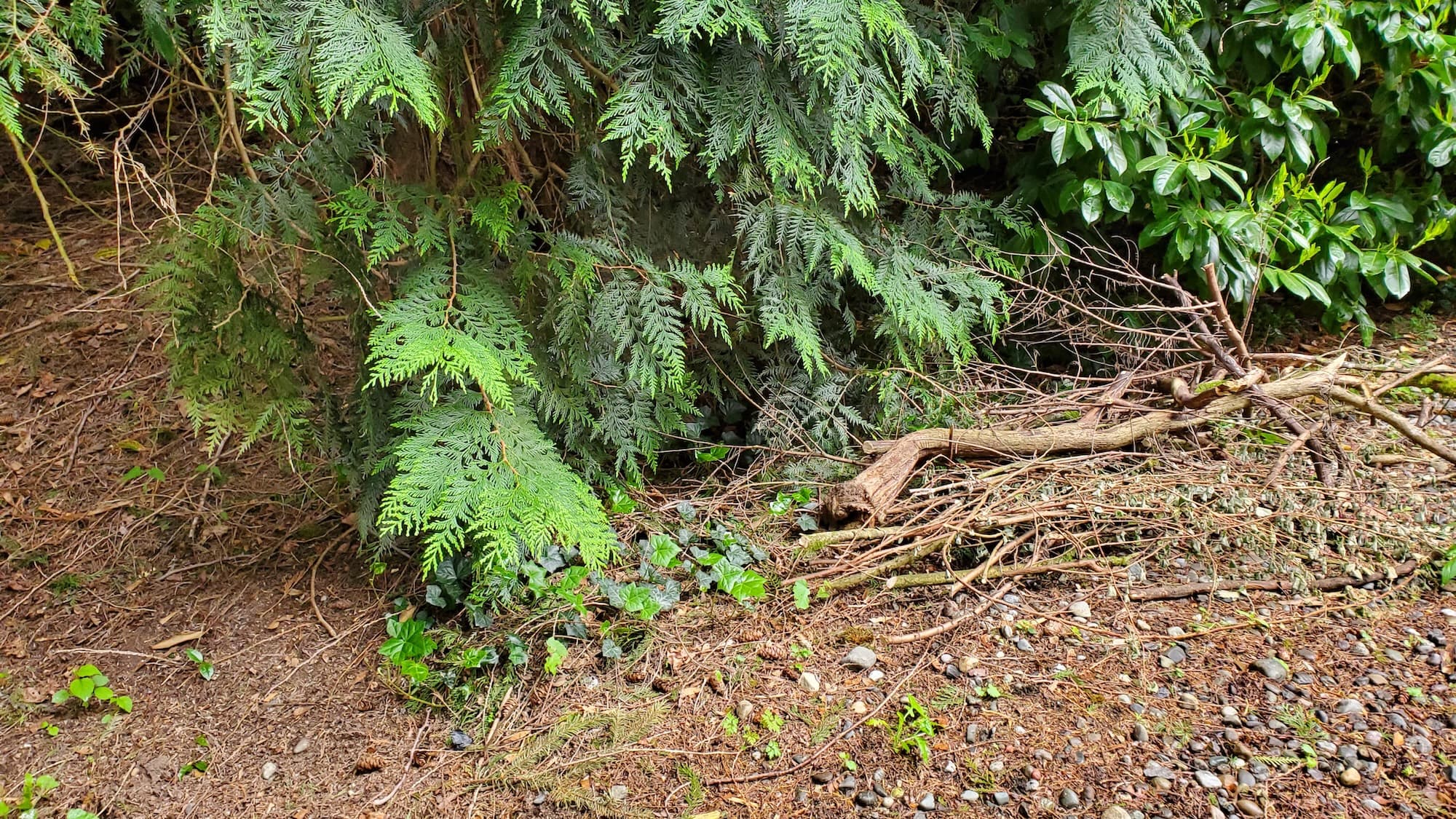West Seattle Stepping Stone Installation
Homeowner’s Issue
West Seattle yards face a specific mix of problems: heavy winter rain, shady slopes, compacted glacial till and clay pockets, and moss that thrives under the evergreen canopy. Properties near Alki and Lincoln Park get salt spray and wind on exposed bluffs, while homes in Admiral and the Junction often sit on steep grades or narrow terraces where mud and worn paths are a constant problem. Spring fling of weeds, ivy overrunning beds, and gutters discharging concentrated runoff all make informal footpaths muddy and unsafe.
Seattle’s rainfall pattern—wet Oct–May and comparatively dry summers—means paths need to shed water in winter yet tolerate summer drought. Many homeowners want a tidy route from driveway to back gate without paving over soil or creating more runoff. HOAs and tight curb appeal standards in some West Seattle neighborhoods demand neat, durable solutions that look intentional, not slapped-on. The city’s composting program and green waste options make clean hauling easier, but access, on-street parking, and steep driveways are common constraints. Sustainable, permeable stepping stones solve mud, protect roots, and reduce long-term maintenance while keeping your yard breathable and green.
Our Quality Service
We install or reset stepping stones with durable, permeable bases and native-friendly edging. We assess sun exposure, slope, soil type, and runoff before recommending stone size, spacing, and base depth. Work is done with hand tools, a plate compactor, levels, and wheelbarrows; small projects typically finish in one day, mid-size paths in one to two days, and larger installs in 2–3 days, weather permitting.
We prioritize sustainable methods—no herbicides. Preparation uses hand-weeding, mechanical root removal, crushed rock or gravel base for drainage, recycled materials when available, and organic compost where planting is added. On slopes we add grade-driven drainage or simple dry swales to keep water away from stepping surfaces. Benefits: safer walkways in wet months, better curb appeal for West Seattle streets, less tracking of mud indoors, and a long-lasting, low-maintenance path that works with local microclimates.
What’s Included
- Onsite consultation and path layout
- Excavation, leveling, and compacted permeable base
- Stone set to stable, even heights with 1–2” play for settling
- Fine grading and adjacent material placement (gravel, mulch, or planting)
- Haul-away of debris; green‑bin option for organic waste
- Post-install care guidance
Options / Upgrades:
- Perimeter edging (steel or recycled plastic)
- Gravel infill or decomposed granite for the joints
- Biodegradable landscape fabric or hand-packed sand joints
- Native groundcover planting (low shrubs, carex, kinnikinnick)
- Solar path lighting (low-voltage, ground-mounted)
- Stone sealing on request (not required; we recommend breathable products)
Before & After / Expectations
Work will be dusty and noisy for brief periods—expect basic excavation, compacting, and wheelbarrow traffic. We need clear access to the work area; driveway space for material staging or a short delivery is helpful. We handle haul-away and can route green waste to the city compost program on request. For small paths we usually finish in a day; limited-scope resets may be completed in a half-day.
After installation, allow joints to settle for a week before heavy use. Water new plantings deeply during dry stretches—best in the morning. In West Seattle, weed pressure spikes late spring; plan a follow-up check in 4–6 weeks. Moss-prone, shaded sections may require occasional scraping and increased sunlight pruning to keep stones clear. Ivy removal is ongoing; expect repeat hand-weeding the first season.
FAQs
Q: How long does a typical path take?
A: Small paths are often a day; medium jobs 1–2 days; large or complex slopes up to 3 days, weather dependent.Q: Do you use herbicides for weed control?
A: No. We use hand removal, manual root-out, mulches, and physical barriers. Sustainable methods only.Q: Will stepping stones increase runoff onto my neighbor’s property?
A: Properly installed permeable bases and grading direct water laterally and into planting beds or dry swales. We design to avoid concentration of flow toward neighboring yards.Q: Do you clean up debris and haul away old pavers?
A: Yes. We offer standard haul-away and can separate organics for the city green‑bin program.Q: Any special prep I should do?
A: Clear personal items from the path, park cars to allow staging, and flag any irrigation lines or buried services.
Call to Action
If you’re in West Seattle and tired of muddy routes from porch to garden, book a quick estimate. We schedule efficiently, know local soils and microclimates, and favor sustainable fixes that last. Free photos-based estimates available; onsite visits when needed.
Email neatandtidyseattle@gmail.com or call 206-538-9344 to get on the schedule. Licensed • Bonded • Insured. Mon–Sun: 9am–6pm.










